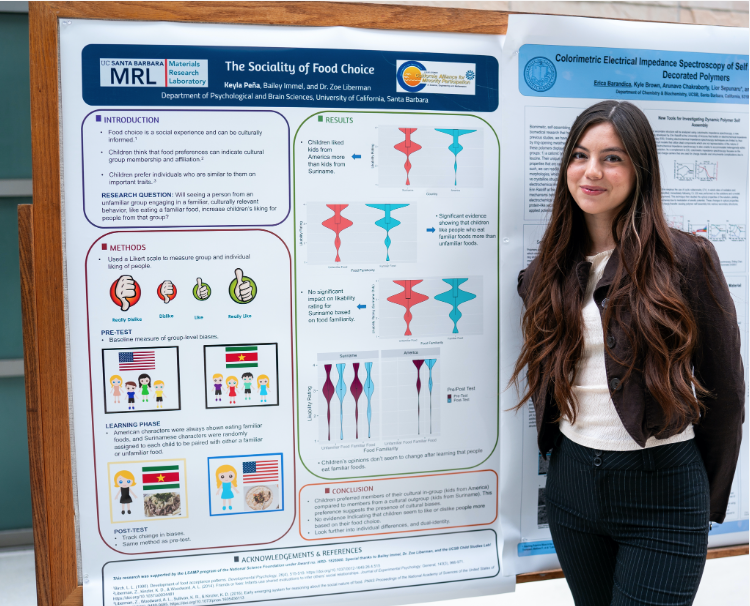
Eating is inherently social, and the foods people eat are embedded in cultural systems. Research with children has shown that they also prefer individuals who are similar to them on traits that are stable and important.. The present study aims to examine how seeing members of an unfamiliar cultural group engage in eating familiar foods impacts children’s beliefs about members of the unfamiliar group. Children (n = 181) ages 4-9 years old (m = 7.79 years ) were first shown people from a familiar and unfamiliar country and asked how much they liked people from each country. They then learned whether people in that country ate familiar or unfamiliar foods and rated how much they liked the individual people. Finally, we again asked how much the children liked people from each country. Results showed that children rated people from America higher than people from Suriname (𝛽=0.22513, p < .001). Additionally, participants rated people who ate familiar foods higher than those who ate unfamiliar foods (𝛽=0.379, p < .001). Interestingly, participants' ratings of people from an unfamiliar country did not change after learning that they eat familiar foods (t(94)=0.123, p = .902). This suggests that simply witnessing shared food choices between different cultural groups may not be enough to influence children's attitudes or preferences towards members of the unfamiliar group. The findings from this study promote a better understanding of how children develop attitudes and preferences toward individuals from different cultures, and outline the early development of biases.